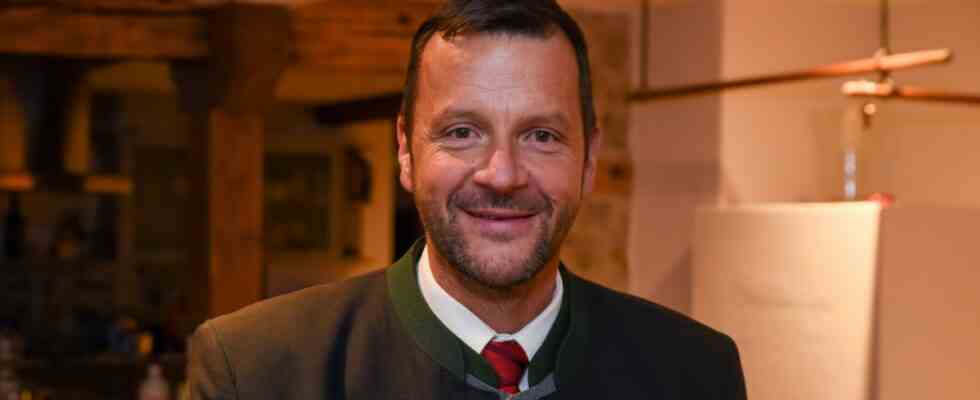The day after the official nomination, Thomas Holz is still “overwhelmed”: With almost 98 percent, he was elected the direct candidate of the CSU for the 2023 state election by the delegates of the district association on Thursday. Only two out of 86 voters voted against wood. Thomas Schwarzenberger, who had applied for a third term as district councillor, achieved the same result. Schwarzenberger has been the mayor of Krün since 2002, a district councilor in Garmisch-Partenkirchen and a member of the district council since 2013.
Thomas Holz, who has been mayor in Kochel for 15 years and deputy district administrator since 2014, would be “a newcomer” in the state parliament, as he says. He is very happy about the clear nomination result, “that’s a great sign of trust”. Holz was the only candidate to succeed Martin Bachhuber, 67, who announced in early October that he would no longer stand for election. As a direct candidate for voting district 111, Bad Tölz-Wolfratshausen/Garmisch-Partenkirchen, the lawyer Holz is now running against Florian Streibl (free voters), Jakob Koch (Greens), Benedikt Hoechner (SPD) and Tim Sachs (FDP). The AfD has not yet positioned itself. A simple majority is sufficient to win the direct mandate.
In the 2018 state election, the CSU received 40.8 percent of the constituency, followed by the Greens with 19.3 percent and the Free Voters (12.5 percent). If Holz makes it into the state parliament, either via the direct mandate or via the second vote, there must be extraordinary new elections in Kochel; because the next local elections will not take place until 2026. A double mandate is not permitted with a full-time mayor, as is the case in Kochel. Because civil servants should not be members of parliament at the same time, explains Holz. “It wouldn’t even be possible to do it in time.” Legal supervision in the district office would then have to schedule new elections within three months, i.e. by the end of January 2024 at the latest. Of course, only if Holz moves into the state parliament. He can’t say anything about a possible CSU candidate or a candidate for the mayoral office in Kochel, explains Holz – “not the second step before the first”. However, he assumes that this will now “be discussed” in the community after his official nomination.
The 46-year-old Holz stands for a generational change in the CSU. He wants to score with his legal expertise and many years of experience as mayor. As deputy district administrator, he has also already worked with the neighboring district of Garmisch-Partenkirchen on issues such as public transport and the Walchensee power plant. The CSU slogan “closer to people” is also his guiding principle, he says. The Kochler named nature and environmental protection, better visitor management for day trippers and at the same time promotion of overnight tourism as well as the preservation of the district clinic in Wolfratshausen as key topics. The planning approval decision for the S7 extension must finally be made in the coming year, “there must be no further delays”. The disaster at the Werdenfels-Kochelseebahn and the “catastrophic communication” of the railway must not be repeated; but at least 100 million euros are to flow into the renovation of this section of the route by 2025. Holz considers an expansion of public transport to be “important and right”. This is shown by the increase in frequency on line 9608 Kochel-Garmisch, which is “superbly accepted”. Rural areas should not be left behind. “What’s the use of a 49-euro ticket if a bus only runs twice a day.” Municipalities and districts would have to get sufficient financial resources to create an attractive local transport offer.
Holz is not clear about the future of the Walchensee power plant. A reversion, i.e. nationalization, as called for by Free Voters, the Greens and the SPD, is not legally possible, and the Ministry of the Environment has checked that. And the fact that the federal government took over the Uniper Group in September changes little from Holz’s point of view; the Free State would have to buy shares from the federal government. It is important that the Walchensee power plant continues to be operated and part of the added value remains in the region.

